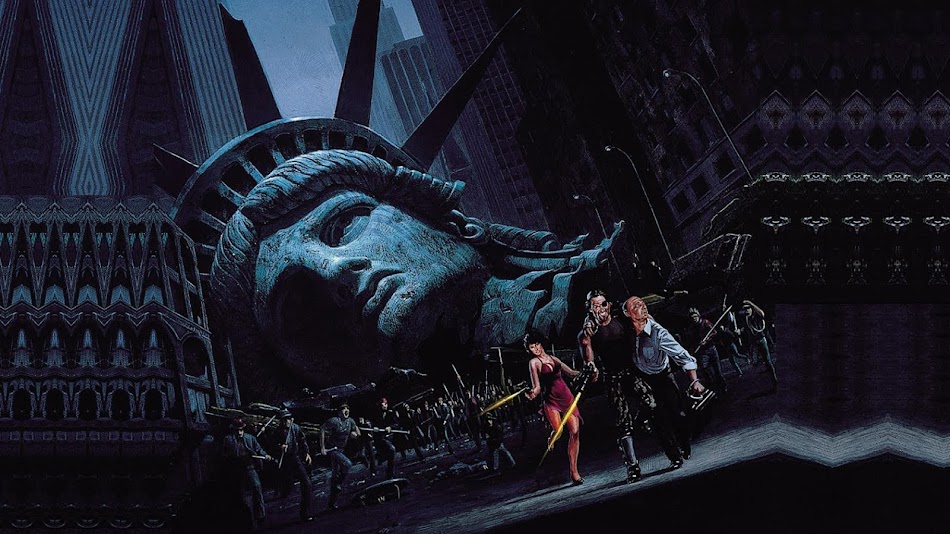Covering cinema from the highest of the highbrow to the lowest of the low-grade.
tenebre

Friday, November 16, 2012
In Theaters: LINCOLN (2012)
LINCOLN
(US - 2012)
Directed by Steven Spielberg. Written by Tony Kushner. Cast: Daniel Day-Lewis, Sally Field, Tommy Lee Jones, David Strathairn, Joseph Gordon-Levitt, Hal Holbrook, James Spader, John Hawkes, Tim Blake Nelson, Jackie Earle Haley, Gloria Reuben, Bruce McGill, Jared Harris, Lee Pace, Michael Stuhlbarg, Peter McRobbie, Walton Goggins, David Costabile, Gulliver McGrath, Joseph Cross, Jeremy Strong, S. Epatha Merkerson, Stephen Spinella, David Oyelowo, Lukas Haas, Dane DeHaan, David Warshofsky, Elizabeth Marvel, Bill Camp, Raynor Scheine. (PG-13, 150 mins)
Last year's excellent WAR HORSE was an unabashedly sentimental, defiantly old-fashioned epic that Steven Spielberg intended to be his "John Ford movie." The biopic LINCOLN, written by Tony Kushner (ANGELS IN AMERICA) and based in part on Doris Kearns Goodwin's book Team of Rivals, finds the legendary Spielberg in that same old-fashioned John Ford mode, which is fitting considering the 1940 classic YOUNG MR. LINCOLN is one of Ford's best-known non-westerns. From the moment the great Daniel Day-Lewis was cast as Abraham Lincoln, expectations were high and statements like "Just give him the Oscar now" were rampant. Day-Lewis is one of cinema's greatest actors, and one who works infrequently enough that it's an event every time he's back on the screen. Not surprisingly, the famously committed actor is a terrific choice for Lincoln, particularly in the physical aspect with body language and the way he looks increasingly gaunt and fatigued as the film goes on.
Set in the last three and a half months of Lincoln's life, LINCOLN gets off to a rocky start and takes quite some time to find its groove. The film focuses on both ending the Civil War and passing the Republican-backed 13th Amendment abolishing slavery. Much of the time is spent on the backroom wheeling and dealing: Secretary of State Seward (David Strathairn) hiring a trio of pushy lobbyists (John Hawkes, Tim Blake Nelson, and a scene-stealing James Spader) to strongarm some Democratic opponents into joining the Republicans; the noble efforts of wily and snide Republican House Ways and Means chairman and vocal Lincoln critic Thaddeus Stevens (a grand, magnificent performance by Tommy Lee Jones) to not just abolish slavery but to grant freed slaves full and equal citizenship; and Lincoln himself working political friends and foes in order to get the Amendment passed.
The first half or so of LINCOLN is filled with a large number of frequently cumbersome grandstanding speeches and assorted pontifications, fitting for the politicians of the time but not exactly cinematic in nature. There's a near drinking-game level frequency to the number of times everyone in a crowded room drops what they're doing to listen to another cornpone anecdote from Honest Abe as Spielberg slowly pulls the camera in towards Day-Lewis while John Williams' predictably reverent, swelling score tells us that there's a Profound Message. It gets to the point where you'll nod in agreement during one such scene where Secretary of War Stanton (Bruce McGill) throws his arms up in frustration and storms out, bellowing "I cannot listen to another one of your stories!" Sure, some of them are funny (the one about George Washington's picture in the bathroom is great), but let's get on with it. Day-Lewis gives his all to the role, but the film rarely lets us see Lincoln the man. The scenes with Mary Todd Lincoln (an occasionally hammy Sally Field) seem rote and predictable and a subplot about their son Robert (Joseph Gordon-Levitt) leaving college to enlist feels cut down. There are some very good moments between Day-Lewis and Gulliver McGrath as youngest son Tad, so we get some attempts at showing us that side of Lincoln, but primarily, it's Lincoln the historical figure. For a director who's always worn his emotions on his sleeve in his films, Spielberg's LINCOLN is frequently cold, distant, and off-putting and it's not until the second half when the vote on the Amendment becomes the focus that the film finally warms up and the senses of humanity and drama kick in, though honestly, the film never really fully catches fire.
What's odd is that, considering how you'd think Day-Lewis' performance should be the emotional core of the film, it's Jones' Thaddeus Stevens that leaves the bigger impression. Too often, it feels like too many cast members are just playing Civil War dress-up (even Day-Lewis at times), but Jones disappears into his role from his first scene all the way to his last, when we see just how important the passage of the 13th Amendment really was to him. This is the best work Jones has done in years and it has to make him frontrunner for a Best Supporting Actor Oscar.
The film looks absolutely superb (Janusz Kaminski has been the cinematographer of every Spielberg film since SCHINDLER'S LIST nearly 20 years ago) from the muddy, bloody opening on a battlefield to the dusty, shadowy interiors of the White House and various Washington offices. Let's be honest here: Spielberg is decades past the point of needing to prove himself to anyone, and merely OK Spielberg is still better than the A-games of most filmmakers. Though it gets markedly better as it progresses, LINCOLN doesn't play like a film with much repeat viewing value, and feels like second-string, inessential Spielberg. And not in the way of a rare frivolous, forgettable Spielberg film like, say, THE TERMINAL or INDIANA JONES AND THE KINGDOM OF THE CRYSTAL SKULL, but in a way that something that has this much going for it should just be...better? It probably has a long life ahead of it in junior high and high school history classes, but really, it's a "pretty good" film with expectations of being a "great" one.
Subscribe to:
Post Comments (Atom)






No comments:
Post a Comment